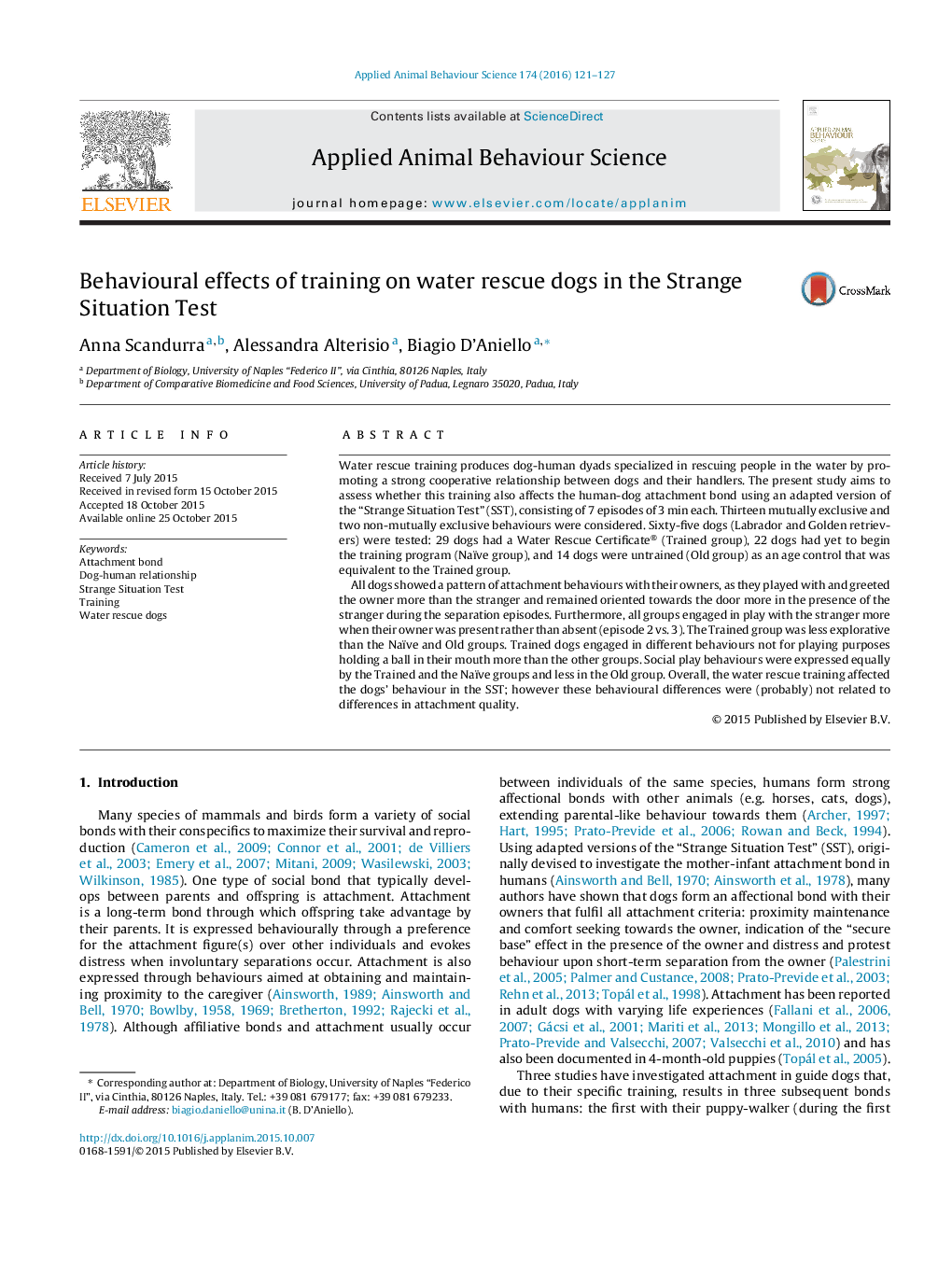| Article ID | Journal | Published Year | Pages | File Type |
|---|---|---|---|---|
| 6379374 | Applied Animal Behaviour Science | 2016 | 7 Pages |
â¢We verify whether the water rescue training affects the human/dog attachment bond.â¢Water rescue training affects the dogs' behaviour in the SST.â¢Water rescue training does not affect the attachment bond.â¢Water rescue dogs are as playful as younger dogs.
Water rescue training produces dog-human dyads specialized in rescuing people in the water by promoting a strong cooperative relationship between dogs and their handlers. The present study aims to assess whether this training also affects the human-dog attachment bond using an adapted version of the “Strange Situation Test” (SST), consisting of 7 episodes of 3Â min each. Thirteen mutually exclusive and two non-mutually exclusive behaviours were considered. Sixty-five dogs (Labrador and Golden retrievers) were tested: 29 dogs had a Water Rescue Certificate® (Trained group), 22 dogs had yet to begin the training program (Naïve group), and 14 dogs were untrained (Old group) as an age control that was equivalent to the Trained group.All dogs showed a pattern of attachment behaviours with their owners, as they played with and greeted the owner more than the stranger and remained oriented towards the door more in the presence of the stranger during the separation episodes. Furthermore, all groups engaged in play with the stranger more when their owner was present rather than absent (episode 2 vs. 3). The Trained group was less explorative than the Naïve and Old groups. Trained dogs engaged in different behaviours not for playing purposes holding a ball in their mouth more than the other groups. Social play behaviours were expressed equally by the Trained and the Naïve groups and less in the Old group. Overall, the water rescue training affected the dogs' behaviour in the SST; however these behavioural differences were (probably) not related to differences in attachment quality.
